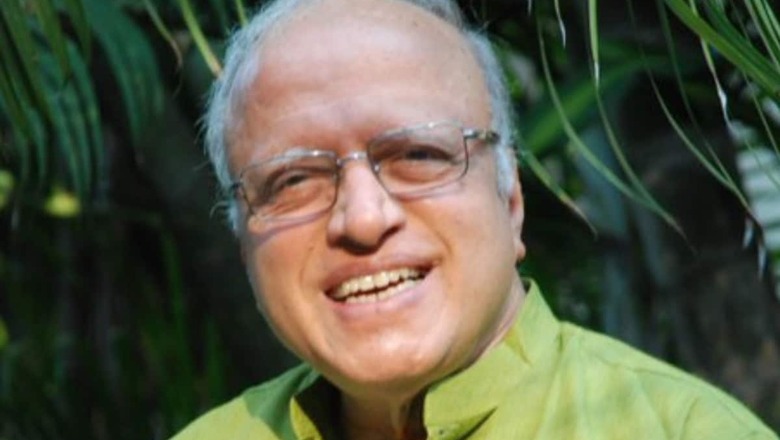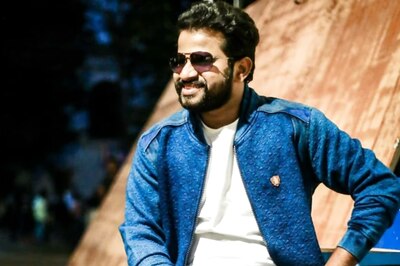
views
MS Swaminathan was a remarkable scientist who changed the course of the history of India through contributions to India’s food security in a very difficult time of frequent famines, hunger and poverty. He was born on August 7, 1925, in Kumbakonam in Tamil Nadu, went for higher studies in England and completed his PhD from Cambridge University in the year 1952. After his studies, although he was offered a position at Wisconsin University (USA), he chose to return to his motherland where he had no job, to serve the country on the back of famines, poverty and hunger due to food shortages and crop failures.
He first conceived the potential of genetic manipulation in paddy and wheat to solve the problem of hunger and famines. He started his career as a scientist with Central Rice Research Institute (CRRI) in 1953 in the indica-japonica rice hybridization programme to develop fertiliser-responsive, high-yielding and short-stature varieties to replace locally available, tall and low-yielding varieties. Varieties developed under this project directly contributed to the Green Revolution in India. In 1954, he moved to the Indian Agricultural Research Institute (IARI), where his focus shifted from rice to wheat. During that period, all local wheat varieties were tall, and these ‘lodged’ (i.e. fell flat on the ground) when their earheads were full of heavy grains. None of the varieties of the cultivated wheat had the ‘genes’ for dwarfing the height of the plants without reducing yield. Dr. Swaminathan identified the potential of Mexican wheat dwarfs which are dwarf, resistant to diseases and also high-yielding when properly managed with adequate inputs like fertilisers and irrigation.
MS not only guided all the experiments leading to the development of the High Yielding Varieties (HYV) but also ably administrated and collaborated with all the government machinery for the creation of wider awareness and adoption among the farming community. The HYVs were tested between 1962-64, and released across India in the year 1965 with a big push from the then Prime Minister Lal Bahadur Shastri under the slogan Jai Jawan Jai Kisan. This resulted in a sharp increase in food grain production by 1967, wherein the state of Punjab didn’t have enough space to store the harvested grains and the food grains were stored in schools by declaring holidays. The rest is history.
MS also contributed to the policymaking of Indian agriculture by advocating remunerative prices to farmers through Minimum Support Price (MSP). He also advocated for an efficient public distribution system to reach the food grains to poor consumers to eliminate hunger.
Later in his career, he worked at the interface between science policy and science administration. He worked as Director-General of ICAR and Secretary to the Government of India, Department of Agricultural Research and Education (1972–1979), Principal Secretary to the Government of India, Ministry of Agriculture and Irrigation (1979–1980) and Member (Agriculture, Rural Development, Science and Education) of erstwhile Planning Commission (1979–1980). He played a key role in shaping the sixth Five Year Plan (1980–1985). Where, for the first time in the history of planning, he introduced two new chapters, one on ‘Women and development’ and another on ‘Environment and development’.
Over and above these policies and scientific leadership, he was a fine scientist who contributed significantly to life sciences. His election as a Fellow of the Royal Society (FRS) in 1973 was in recognition of his original and most innovative theoretical and experimental basic research in cytogenetics, radiation and chemical mutagens.
A major distinction between many working in the frontier areas of life sciences and MS Swaminathan is what he has done with the fruits of their research findings. While most of the scientists are confined to only laboratories and research papers, Dr. Swaminathan’s goals were to take the fruits of research to the millions of farmers’ fields. He was an ardent advocate of science-led inclusive growth. He believed that genetics and plant breeding techniques have the potential to enhance crop yields threefold and eliminate poverty and hunger. He showed that these technologies could be widely adopted by the farmers during the Green Revolution period.
Later in his career, he shifted his focus and pioneered in promoting sustainable agriculture and rural development using innovative paradigms such as ecotechnology-based bio-villages and modern information and communication-based Village Knowledge Centres (VKCs).
It is well known that MS Swaminathan played a pivotal role in developing the ‘Protection of Plant Varieties and Farmers Rights Act 2001’ (PPVFRA 2001) as India’s response to its obligation to provide sui generis protection to plant varieties under TRIPS and WTO. This Act is unique in that it recognises the important role played by farmers not just as cultivators, but also the role of tribal and rural farming women and men as conservers and enhancers of agro-biodiversity. The Act legally provides for their recognition and monetary reward.
He championed the cause of biodiversity on multiple platforms from local, national to global levels. He advocated that in an era of climate change with increasing biotic and abiotic stresses, the future of food security largely rests on the availability of genes to shield the crops against floods and droughts, high temperatures, salinity and degraded soils, and climate change-induced pests and diseases. He was the moving spirit behind starting Biodiversity International, Rome and International Crops Research Institute for the Semi-Arid Tropics (ICRISAT), Hyderabad and many other international organisations to promote science-led inclusive agricultural growth.
He built every institution with the interests of farmers in mind and ensured that these institutions fulfilled the environmental, social and economic goals of sustainability and fruits of the research reach all farmers, especially small and marginal and women farmers.
He was awarded the World Food Prize in 1987 for his significant contributions to advancing agricultural science and improving food security. With the award money, he established MS Swaminathan Research Foundation (MSSRF), in Chennai. The major goal of MSSRF has been to harness science and technology for sustainable rural development. Simply stated, MSSRF blends frontier science and technologies (e.g. space, nuclear, information and communication and biotechnologies) with the traditional knowledge and ecological prudence of the rural and tribal communities to provide a pro-nature, pro-poor, pro-women and pro-livelihood orientation to technology development and dissemination in rural areas.
He was also a pioneer in advocating for climate-resilient agriculture through advanced science and farmers’ participation. He was of the opinion that with climate change and rising sea levels, there is a possibility of salinisation of coastal soils, where rice is a major crop. Hence, under his guidance at MS Swaminathan Research Foundation (MSSRF), scientists started experiments on the development of salt-tolerant transgenic rice varieties through ‘participatory breeding’. He was also quite emphatic that the safety of human health and the environment should be the bottom line. Any transgenic crop not known to be absolutely safe to biological systems should not be introduced into the environment.
A. Amarender Reddy is Joint Director, School of Crop Health Policy Support Research (SCHPSR), ICAR-National Institute of Biotic Stress Management (NIBSM), Raipur. Views expressed in the above piece are personal and solely those of the author. They do not necessarily reflect News18’s views.




















Comments
0 comment